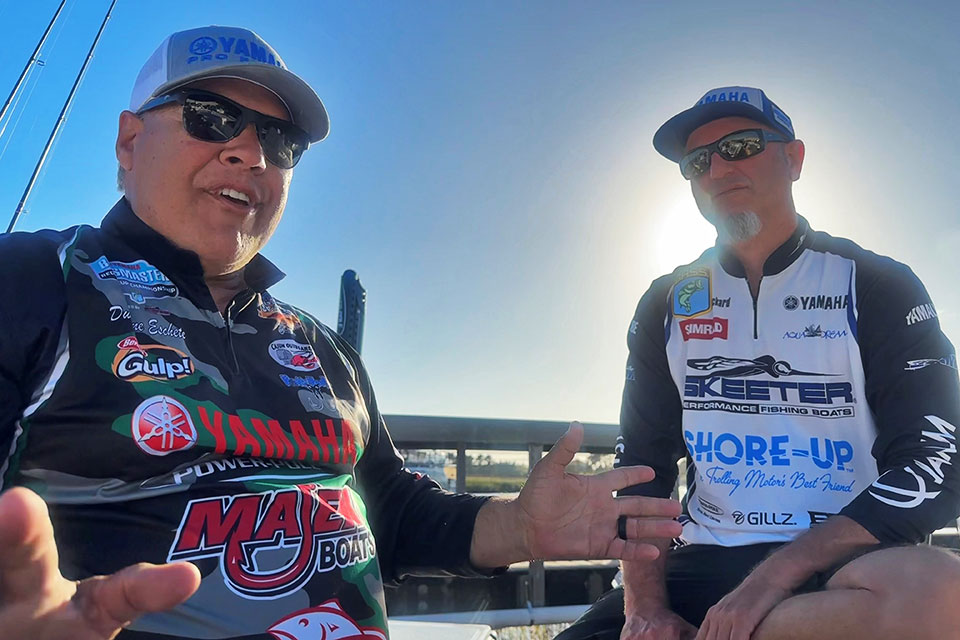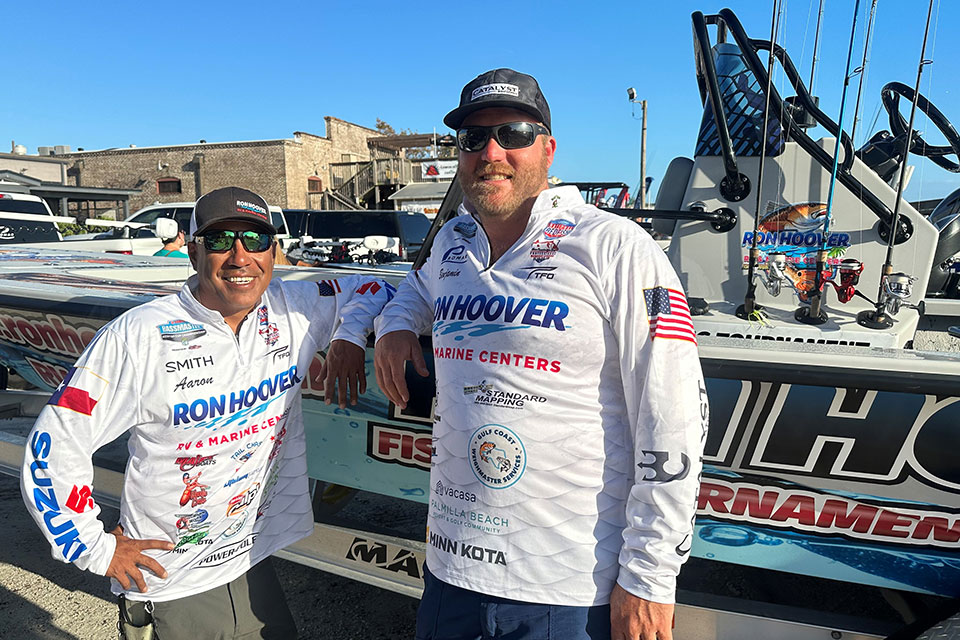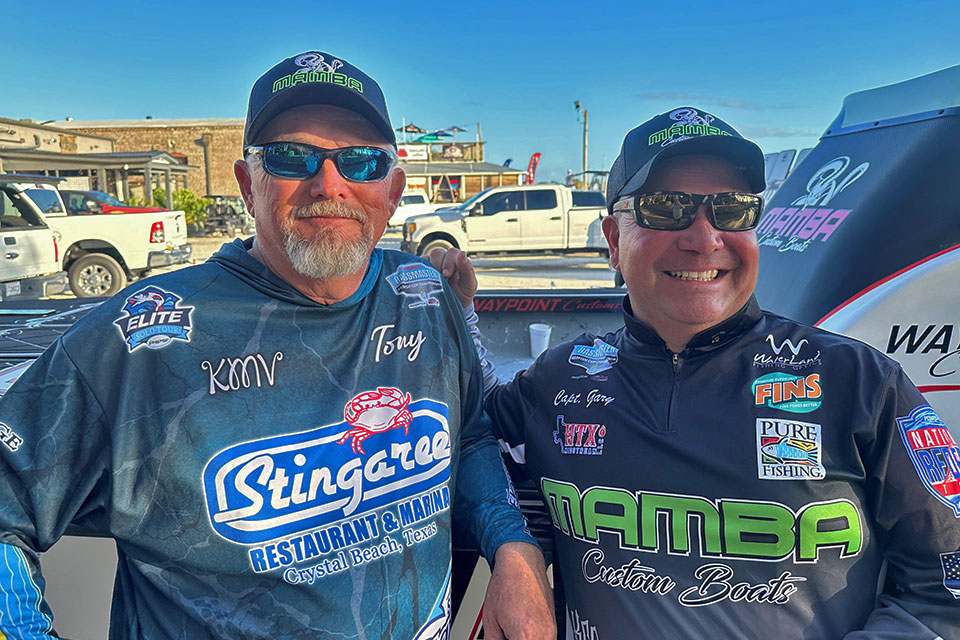
Beware the tides of marsh, veteran redfish pro Dwayne Eschete said before Day 1 of Bassmaster’s third Redfish Cup Championship.
The Lake Jackson, Texas, angler said there’s a high probability a team or two won’t make it back to the daily weigh-ins. The possibility of taking a zero is real.
“We prefished in low water with a rising tide,” said Eschete, who’s teamed with Bassmaster Elite pro Drew Cook. “Tomorrow, the tides swap. You best not be in the creeks then, because you’re not coming out. You’re not coming out until about 6 at night.”
During the three days of practice, several of the 10 two-angler teams reported running aground, some more than once. The team of Ben Human and Aaron Salazar of Corpus Christi, Texas, said Winyah Bay left them high and dry plenty.
“We got stuck about nine times,” Salazar said. “We’re from a place with practically no tidal movement at all. We may have 6 inches, nothing like the 6 feet here.”

The Power-Pole Team of the Year was still hopeful as they located fish, and Human said practice was a beneficial eye-opener, even if they did have to wait out for higher water.
“We’re still learning the tides. We got stuck a couple times, but we found some fish,” he said. “I think we’ll end up alright — the tide is supposed to be a little higher.”
As Eschete warned, Day 1 will start on a high tide and then fall. A full moon will make water levels their highest this week during the first two days of competition, but then the bottom is supposed to drop out Sunday. The teams are planning their attack by it.
“We have to plan when to get out of which spots, and then where to go to next to catch it with enough water to fish,” Human said. “Also, just to be able to get to your next spot.”
Another team of Texans, Gary Moreno and Tony Viator from the Elite Redfish Series, found some success in practice that turned heads. Others see them as a threat after they posted photos of some quality fish on social media.

“We’ve been really blessed,” Moreno said. “We came in with a game plan — put tracks on where we want to fish on a low tide so we can get in and out safely. That was the No. 1 goal for Day 1, and we actually found quite a few fish.
“On Day 2, we went to see if we can expand on what was successful and why it was successful. Again, we were very successful.”
Moreno said they found fish on a fluke. They saw dolphins feeding in a backwater and upon closer inspection found a mother lode.
“We went up there and I guess the motor spooked the dolphins off,” Moreno said. “The dolphins were feeding on redfish. They pushed them up in this edge of a shoal, and there were redfish everywhere. So we expanded our search off that.”
They left that area alone on Day 3 of practice, hoping to develop B and C plans, but the tide, after all their considerations, left them grounded.
“We weren’t just stuck,” Viator said. “We were sideways.”
Staying afloat aside, Morena was upbeat that his team was on good fish, even if the plan is risky.
“We learned that as the tide falls and creates these pockets, they’re full of redfish,” he said. “If we can get trapped in there with these redfish, which undoubtedly some of these other guys will do, we’ll just have to be cognizant of when the tide comes back in.”
That’s why Eschete said bringing in a limit of four fish in the 17- to 23-inch slot is not necessarily critical on Day 1.
“It’s highly possible some team doesn’t make it back,” he said. “The tournament is not going to be won on Day 1. You catch two, three and the guys leading can get stuck. So keep that in mind; don’t get disgusted if you only have a couple fish on Day 1.”
Capt. Ryan Rickard, winner of the first RCC in 2021, agrees. He’s teamed with Elite pro Justin Atkins, and said filling limits might not happen across the board, but it a team can bring in 12, he woulnd’t bet against them.
“I’ve been here six or seven times, and I know enough to be dangerous, but this has been the most difficult time here,” he said. “Before I got here, I said it would take 52 pounds to win. Now, after what I have seen — and I don’t know it all but I’m generally pretty good — it’s going to probably be around the low 40s, upper 30s.”
Both Rickard and Eschete said they’re confident a number of teams will not limit each day, so “the tournament is going to be won by bringing in four fish,” Eschete said. “We’ve caught overs and we’ve caught 15-, 16-inch fish. The state slot is 15 to 23. The tournament is 17 to 23. If it was 15 in the tournament, I’d feel a lot better about getting a limit.”
More important, of course, will be getting them back to weigh-in.





